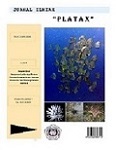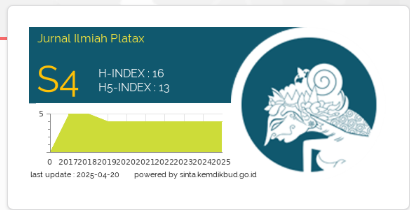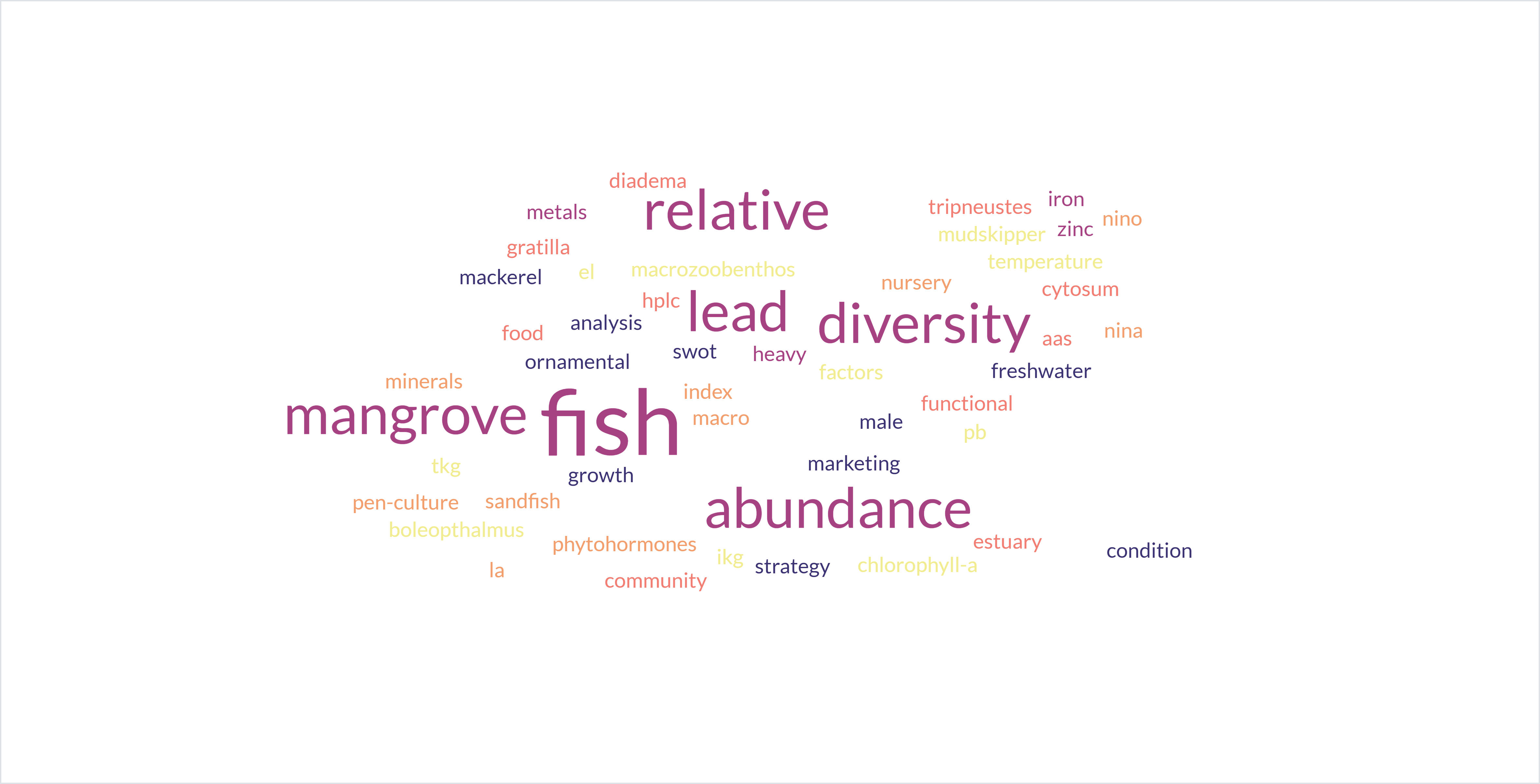Antibacterial Screening Activity of Several Sponges Against Staphylococcus aureus, Escherichia coli, Staphylococcus saprophyticus, dan Pseudomonas aeruginosa
DOI:
https://doi.org/10.35800/jip.7.2.2019.26026Abstract
Sponge samples collected around Manado waters were obtained 30 species and their crude extracted have been tested in vitro for their activity in inhibiting bacterial growth. Based on the results of antibacterial screening in 30 sponge extracts, there were 23 sponge extracts which had bioactivity in inhibiting the growth of S. aureus, E. coli, S. saprophyticus and P. aeruginosa, Sponge extract No. 43 (of 30 sponge extracts tested) was the most active in inhibiting bacterial growth and had the widest inhibition zone diameter.
Keywords: screening, sponge, crude extract, antibacterial, Manado
ABSTRAK
Sampel spons dikoleksi di sekitar Perairan Manado sebanyak 30 jenis/spesies, dimana ekstrak kasarnya telah diuji secara in vitro aktivitasnya dalam menghambat pertumbuhan bakteri. Berdasarkan hasil skrining antibakteri pada 30 ekstrak spons didapatkan hasil ada 23 ekstrak spons yang mempunyai bioaktivitas dalam menghambat pertumbuhan bakteri S. aureus, E. coli, S. saprophyticus dan P. aeruginosa, Ekstrak spons No. 3 (dari 30 ekstrak spons yang diuji) adalah yang paling aktif dalam menghambat pertumbuhan bakteri dan memiliki diameter zona hambat yang paling lebar.
Kata kunci: skrining, spons, ekstrak kasar, antibakteri, Manado
Downloads
Published
How to Cite
Issue
Section
License
COPYRIGHT
Authors who publish with this journal agree to the following terms:
Authors hold their copyright and grant this journal the privilege of first publication, with the work simultaneously licensed under a Creative Commons Attribution License that permits others to impart the work with an acknowledgment of the work's origin and initial publication by this journal.
Authors can enter into separate or additional contractual arrangements for the non-exclusive distribution of the journal's published version of the work (for example, post it to an institutional repository or publish it in a book), with an acknowledgment of its underlying publication in this journal.
Authors are permitted and encouraged to post their work online (for example, in institutional repositories or on their website) as it can lead to productive exchanges, as well as earlier and greater citation of the published work (See The Effect of Open Access).






































